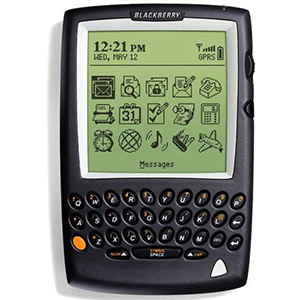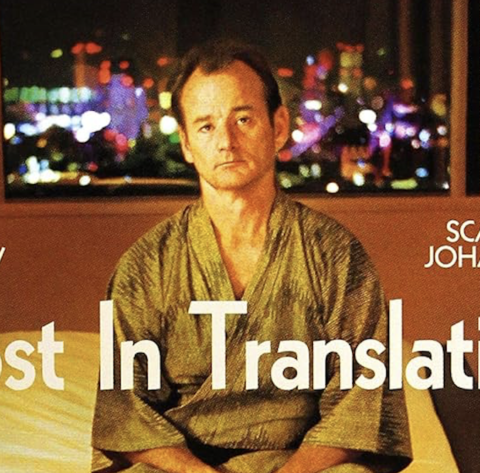Improvising In Film
By Emily Zoeller
Communication is key. It’s how we build relationships. It’s how we get our point across, tell stories and even hear tales in music. All over the world, speech is so crucial and as we know, words have power. In books, TV shows and films, dialogue is key to the narrative. To keep the entertainment paced and pull you, the audience, in. And there’s nothing more inviting than dialogue in entertainment that feels real, feels unscripted. It almost gives you a sense of being there as a character yourself. But what if it really was unscripted? Read more in Improvising In Film.
It takes a lot to make a film. Having to think about cinematography, mise-en-scene (setting the scene, lighting, set design), sound, editing, and narrative. But what happens when you take out what some consider a crucial element of film-making: the script? In some ways, directing a film without a clear dialogue plan can be difficult, but in other ways, it could make a brilliantly authentic movie. Let’s delve deep into a world without script, as we look at six films that are (mostly) improvised.
Starting off in the late 90s in Japan, After Life (1998) tells the fantastical story of the space between life and death. For it is unknown what happens after we die, director Hirokazu Kore-eda uses interviews in the majority of scenes to ask the people, who arrive at the ‘station’ after they pass away on Earth, to choose one single memory to take with them to the afterlife.
Many of these interviews are scripted, with the actors playing the role of their characters precisely. Yet others were not: it was revealed that the dialogue was partly unscripted, with some actors actually recalling memories from their own lives outside of the film, improvising their interviews. It shows a mixture of people, from a teenager who wants his memory to be of a ride in Disneyland, to an aviator who chooses the memory of flying through clouds. A pure and authentic film that is sure to tug on heartstrings.
Another film that may surprise many where the actors are partly improvising is Blue Valentine (2010). Starring Ryan Gosling and Michelle Williams, the film is centred around Dean and Cindy, a couple who are slowly falling out of love with each other due to Dean’s alcoholic tendencies.
Most fans will be aware of the improvisation of the dialogue between the actors, with the script merely acting as an outline, conveying a sense of originality and realness within the film.
In a scene where Cindy and Dean are walking around New York City, Derek Cianfrance (director) followed Gosling and Williams from sunrise to sunset, as they improvised getting to know each other as both characters and actors who have only just first met.
Coherence (2013) is another example of improvised dialogue. The story revolves around a group of friends at a dinner party, where the disturbance of a comet results in a power outage and supernatural occurrences.
A mix of alternate realities, this film has a variety of scenes, from a casual dinner party to moments that get your heart beating in thrill and anticipation. During filming over five days, director James Ward Bykrit would give the actors individual notes without the other actors knowing what was on these notes. Here, the cast improvised with the script. A dinner party controlled purely by the director who knew all of the twists.
Sometimes this worked spectacularly, according to Bykrit, other times it failed as actors took routes that were off-topic, leading to the director having to steer them back. Like solving a puzzle in real life, and behind the camera.
Another film that has elements of dialogue that is improvised is Climax (2018). A psychological horror that is gut-wrenching, and disturbing; an LSD nightmare. A dance troupe, inspired by a real French dance troupe from 1996, gather to rehearse and continue to celebrate their performance in an abandoned school. It’s all fun and games until conversations and tensions rise, and the night topped off as someone spikes the punch bowl with hallucinogens. Some characters talk and open up, whilst others feel the full effects of the drugs, going insane and harming one another.
The film was wrapped after four weeks, with no script for dialogue, allowing the cast to completely have control over what happens to their character, leading to strange happenings and scenes of pure confusion that compliments the nature of the film’s topic. The director, Gaspar Noe, is no stranger to wacky and artistic films, as he is famous for directing the 2009 fantasy drama Enter The Void.
Mike Leigh is notorious for improvising. He starts to work on every film without a script, which leads to hours and hours of improvised dialogue by actors that is eventually shortened by Leigh. He also bases a lot of characters off of one character’s friend, for instance, or a person they know personally. Mike Leigh talks to each actor individually to deduce these new characters, giving each film a sense of realism that ultimately leads to more emotional improvisations.
His famous film, Secrets and Lies (1996), tells the story of Hortense as she seeks to find her birth mother. It’s a beautiful film, a film about love, reconciliation and understanding each other. And the script, of course, was improvised, showing another stunning example of emotion between characters that was not planned in advance.
A Clever Woman (2022), released in late April, explores topics of grief, reminiscing and infidelity all in one film. The story of two sisters, Dot and Phoebe, as they prepare to sort out their late mother’s house on the Isle of Wight turning it into a memorial for friends and family. Accompanied by family friend Monica and housekeeper Tom, tensions rise as secrets and stories are revealed, about not only the sisters’ mother but about the characters involved in helping with the house.
The foreshadowing between the affairs both past and present in the film gives this film a hint of drama, and to know that the dialogue between characters is actually improvising also gives the audience a sense of authenticity, like we are watching the series of events unfold in real life.
Director Jon Sanders leads with unexpected dialogue and genres that do not conform to the usual British drama films. It’s a must-see about bereavement that many can relate to, but also the bond of siblings and friends, no matter how hard times can get.
Improvisation in film has opened directors up to a world of realism, a way in which actors can convey and control their character’s actions and reactions with such genuineness, it draws the audience in like they are part of the film’s scenes. If subtracting the control of a certain element of film, like dialogue, can lead to films like these, what’s stopping people from doing the same with other elements of filmmaking? Improvisation will continue to be used in film, and for all the right reasons, showing the talents of not only the improvising actors, but the risk-taking directors.
From Japan, to the US, to France and Britain, dialogue from all different languages still conveys a sense of emotion when improvised, specifically in the media. It’s a way in which we communicate and express ourselves, and to see the genuineness of this in films, it’s hard not to feel compelled by the acting and the story.
A Clever Woman (2022) is in cinemas 21st April 2023 (UK). Buy tickets here.
Cover Image by Jon Sanders
If you liked Improvising In Film, why not try From Short Stories to Films.





